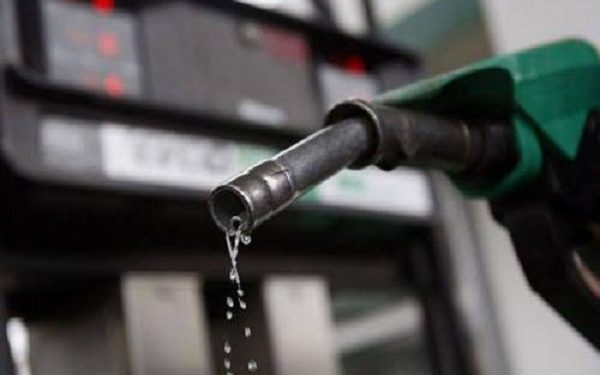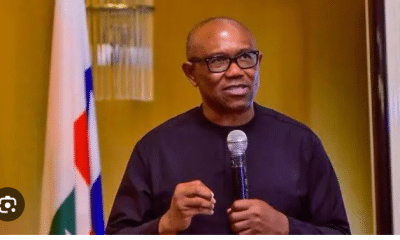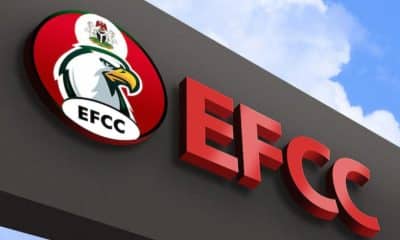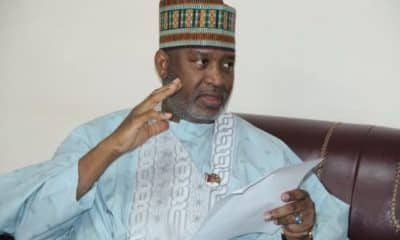Editorial
Before Government Replaces Fuel Subsidy With ₦5,000 Transport Allowance To Poor Nigerians

Talks about complete deregulation of the downstream sector of the Nigerian petroleum industry is in the news again to the discomfort of Nigerians who are at the receiving end of the policy. Although the removal of fuel subsidy is billed to happen in June next year, not a few Nigerians will already be depressed by the likelihood of premium motor spirit (PMS) selling more than half the price by the middle of next year. Yet, if the World Bank were to have its way, the money spent by the Nigerian government subsidizing the cost of petrol in the country would have been removed or be out of the Nigerian government’s expenditure by the first quarter of 2022.
This pressure from the Bretton Woods institutions for Nigeria to do away with fuel subsidy regime has been long in coming. Since the Babangida era, they’ve not relented in pushing Nigeria to adopt austerity measures that sap the meagre earnings of Nigerians. How genuine can their love for Nigeria be when they always recommend policies that further pauperize Nigerians without pressuring the government on wasteful spending, ostentation lifestyle of public office holders, corruption and other proclivities which are actually at the root of fiscal challenges which the government is grappling with?
Pray, why won’t the World Bank and IMF pressure President Muhammadu Buhari and public officials to desist from medical tourism, sending their children and wards to foreign schools, drastically cutting down on the number of cars in their convoys? The foreign financial institutions’ turning of a blind eye to the financial irresponsibility of the Nigerian government is perhaps the reason why local authorities oblige them when they press for the removal of fuel subsidies. The proposed removal does not affect the ruling class since they live off public funds such that they don’t even fuel their cars. Government foots the bill!
The Minister of Finance, Budget and National Planning, Zainab Ahmed, while speaking at the launch of the World Bank Nigeria Development Update (NDU) “agreed” with the report for the government to phase out subsidies such as the PMS subsidy while adding that “The subsidies regime in the [oil] sector remains unsustainable and economically disingenuous.” Ahmed further stated that although the removal of fuel subsidy is set for June 2022, the federal government hopes to do this before June – in line with the Petroleum Industry Act (PIA). The World Bank and the International Monetary Fund (IMF) will do well to direct the attention of those manning our nation’s economy to revenue-saving measures rather than implement policies that will make Nigerians further tighten their belts.
If the pump price of petrol rises to N340 in Nigeria as being projected when fuel subsidy is removed, how will that compare with Algeria and Angola where PMS sells for the equivalent of N136.25 and N112.78 per litre? These are African countries that are also oil-producing like Nigeria. How about another oil-producing country, Iran where petrol is selling at the rate of N24.69? What are these countries getting right that has enabled their citizenry to enjoy the fruits of an oil-producing nation? The answer is actually what the Bretton Woods institutions should recommend to the Nigerian government.
Unfortunately, the Nigerian government is spoiling to remove fuel subsidy without exploiting homegrown solutions to dwindling public revenue. Naija News is constrained to ask why has the recurrent turnaround maintenance of the nation’s refineries failed to turn them around? How about the various modular refineries in the country which can be harnessed to stop the sleaze-ridden importation of refined petroleum products?
We recall that in 2016, then Minister of State for Petroleum, Ibe Kachikwu disclosed that the country was importing 30 million litres of PMS a day after eliminating corruption and having transparency. In May 2021, this figure has increased to 103 million litres per day with the Nigerian National Petroleum Corporation (NNPC) blaming the outrageous spike on smuggling across the borders. Why can’t the government checkmate this smuggling and in the process save substantially from the N243billion said to be spent monthly in subsidizing petrol.
Naija News avers that government has no justification hiking the cost of PMS or removing fuel subsidy until it has blocked leakages in the system and made the refineries functional. As of August this year, Nigerians were apprehensive that President Muhammadu Buhari’s assent of the PIA effectively ended the payment of fuel subsidy in line with the provisions of the Act. This fear was promptly dispelled when the Federal Government assured that the retail price of petrol will remain at N162 per litre until a feasible framework for full deregulation has been developed.
Pray, has a feasible framework been developed now? The government may answer in the affirmative by referring to the feasible framework as the monthly hand out of ₦5,000 transport allowance to between 30 to 40 million poor Nigerians. While it remains to be seen how that pittance can ameliorate the pump price of PMS rising to N340 or N400 per litre, the government has not given Nigerians a reason to trust it to be judicious in the disbursement of this allowance. At the peak of the Covid-19 lockdown, the distribution of palliatives by the government to cushion the effect of the concomitant economic lull on poor and vulnerable Nigerians in parts of the country was badly managed.
There are doubts over the Federal Government’s distribution of ₦5,000 to poor Nigerians during the Covid-19 lockdown under the conditional cash transfer scheme. While many citizens say the poorest of the poor in their locality did not get the conditional cash transfer, some others stated that they cannot trace any of the seven million households who the Minister of Humanitarian Affairs, Disaster Management and Social Development, Hajia Sadiya Umar Farouq, said benefitted for the conditional cash transfer or palliatives.
Though some CBT mechanisms were used in its compilation, the national social register which the government uses in making conditional cash transfer has remained a subject of controversy. Many believed that it is skewed in favour of a certain part of the country. Naija News demands that these issues must be addressed before the federal government goes ahead with the same register in making digital payment of N5000 to safeguard poor and middle-income households after the full removal of fuel subsidies next year. Even at that, the value of ₦5,000 is currently so weak that the purchasing power of the sum can only be imagined when inflation hits the roof as a result of the complete deregulation of the downstream petroleum sector.
Nigeria is already the poverty capital of the world with inflation shocks pushing eight million more Nigerians into poverty within two years. These statistics should make the Nigerian government think twice about removing fuel subsidy unless the move is a calculated attempt to further impoverish the people such that the ₦5,000 transfer becomes enticing enough for voters to collect and vote in a particular direction during the 2023 general elections.












